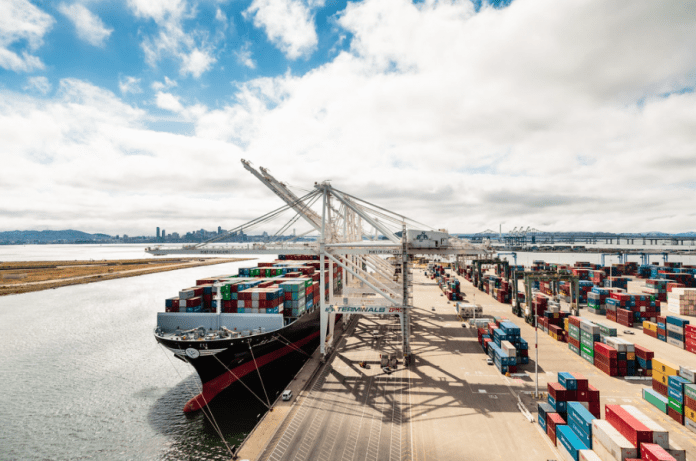Shipping lines trying to switch port calls because of cargo congestion have to follow long-established procedures and rules designed to make the system fair for all parties.
The situation at Oakland, which is calling for more cargo while the San Pedro Bay ports 700 km south are choked, is a good example.
Port of Oakland spokesman, Robert Bernardo told Container News that the marketing department is contacting importers, exporters and shipping lines abroad to tell them that there is no congestion. Hapag-Lloyd is bound to be one of those contacted, having suspended service earlier this year because Oakland itself was congested. Port of Oakland Maritime Director, Bryan Brandes says this was due to crane and terminal overhauls combined with a shortage of dockworkers.
Another likely prospect is ZIM, which changed its decision to make Oakland first call and moved to Los Angeles. Likewise, CMA CGM, which had launched a fast transpacific service early in the year with Oakland as its first US port, has alternated calls with Seattle.
The port has a competitive niche as an agricultural exporter, particularly beef to Asia, which is a big factor in ONE’s return.
The procedures apply to all ports and not just Oakland or California. One month is about the average between a line announcing a change and the first call at a new port. Another two weeks can be added for management to decide on a different rotation.
Hapag-Lloyd in mid-October said it would suspend calls at Savannah in mid-November and go to Jacksonville instead. CMA CGM also said in mid-October that it is changing calls from Savannah to Charleston in the middle of November.
Ocean Network Express (ONE) is restarting its PS5 service to Oakland on 13 November, a month after making an announcement. It suspended service in 2019.
Federal, state and port authorities have to be notified (approval is usually routinely given unless other considerations arise such as unfair competition), customers contacted, tariffs set and terminals to be chosen.
Martin Rushmere
US Correspondent







